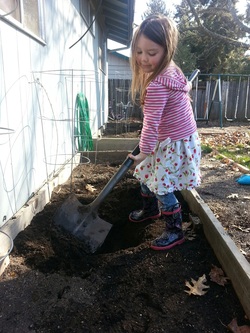Never give up. And most importantly, be true to yourself. Write from your heart, in your own voice,  A good friend, Laura LeHew, has a small poetry press, Uttered Chaos, based in Eugene, OR. She sent me her most recent publication, Turn, an anthology of poetry in which the months of the year are highlighted. I remember attending a critique group where we all admitted to having written "November poems." And these poems were moody, introspective. Were we reacting to the coming darkness, the anticipation of becoming more insular, more solitary? November's wistful poem is markedly different than May's exuberant one. Or the heat and humidity of an August poem, the weariness of continual sun and light. I am going to write a review of Turn, but here I am more interested in the larger story of how each voice in this book is (gratefully) unique. When we think we have to write like Billy Collins or Mary Oliver or Sylvia Plath, we've missed the point. We may be able to mimic style and voice to a degree, but we will never write their poems as well as they do. As I read Jane Hirshfield's poems the other day, I became envious; I wanted to write her poems. I wanted to capture what she'd captured in just the way she'd captured it. When I returned to the world of limitations and differences, I was grateful to this woman for giving so much of herself to poetry, for living such a particular life that whatever she writes is astoundingly unique. from "The Promise" by Jane Hirshfield Stay I said to my body. It sat as a dog does, obedient for a moment, soon starting to tremble. As writers, as poets, our need is to dig deeper into our November selves, to expose and turn over whatever we've buried, whatever asks for May's exposure. And when that material frightens us, and it will, we'll know it is the rich detritus of creation. This is what makes our poem our poem. No one else has this exact experience, the corresponding emotions, or the singular voice that only we possess. In reading through Turn, I could not choose one poem above another. But "November, Late" by Amy MacLennan, with its subtle grace, its forgetting of self, is my current favorite. The author is talking about losing someone, a final gift, but throughout the poem she works deftly with the image of leaves. from "Novemeber, Late," by Amy MacLennan Daylight will come back with new leaf folds on the tips of branches. I watch for them even now, even as the dying ones remain. Although I might have a similar experience, I could never have written this poem in this way, its inflections, its tone, belong solely to the poet. As I continue on through Turn, I am as excited to find differences, as well as similarities. Like the seasons, there is beauty in sparseness as well as in abundance, in the lyric as well as the narrative.
1 Comment
4/14/2013 11:18:17 am
Really liked your review and would like to purchase Laura's book.
Reply
Leave a Reply. |
Archives
October 2022
AuthorMy writing often deals with the environment, my poetry filled with allusions to natural and man-made disasters. I have unlimited hope though; there is just too much wonder in this world to become a defeatist. To quote Margaret J. Wheatley, '"Hopelessness has surprised me with patience." Categories |
 RSS Feed
RSS Feed
